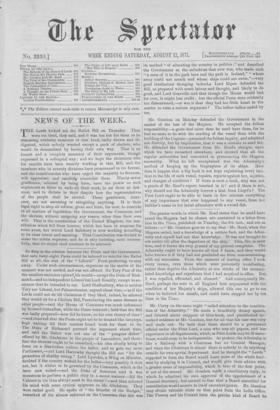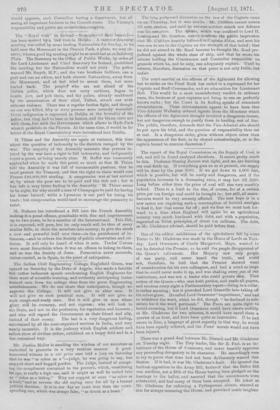Mr. Corry on the same night "called attention to the
constitu- tion of the Admiralty." 'lie made a dreadfully dreary speech, and littered about snippets of blue-book, and pitehforked un- cooked evidence at Mr. Goschen, but for all that his ease was very well made out. He held that there should be a permanent official under the First Lord, a man who sees all papers, and has experience in all departments, which, as First Lords may be ill some- times, would seem to be indispensable. At present, the Admiralty is like a Railway with a Chairman but no General Manager, and when the Chairman is absent there is nobody to do anything outside his own special department. And he thought the " Lords " supposed to form the Board would learn more of the whole busi- ness by studying it in Council, and would give their advice with a greater sense of responsibility, which is true of the first point, if not of the second. Mr. Goschen made a conciliatory reply, in which he admitted his own approval of the appointment of a General Secretary, but seamed to fear that a Board assembled for consultation would accrete to itself executive power. Mr. Goecheu may obtain valuable hints on that point from the India Office. The Viceroy and his Council form the precise kind of Board he
would approve, each Councillor having a department, but all seeing all important business in the Council-room. The Viceroy's responsibility and power are nevertheless complete.































 Previous page
Previous page